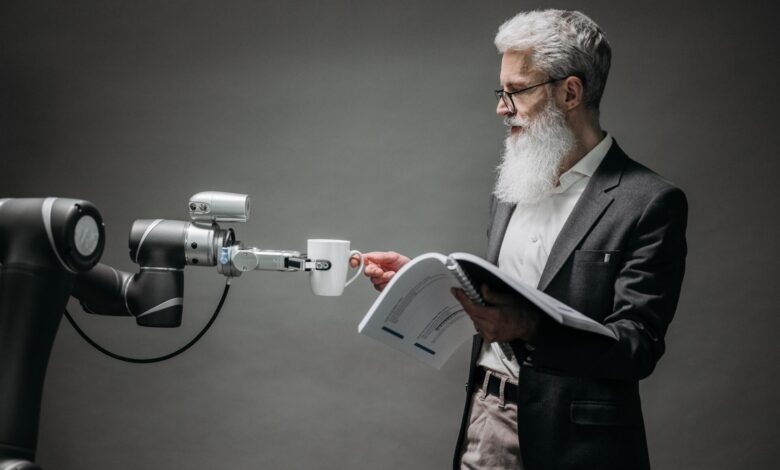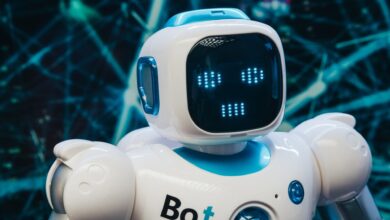The Revolution of Artificial Intelligence (AI)

Artificial intelligence (AI) has become a hot topic in recent years, with many people wondering what it is, how it works, and what impact it might have on society and the economy. In this article, we will explore what AI is, how it is being used today, and what the future might hold for this rapidly evolving technology.
At its most basic, AI refers to the ability of a machine or computer system to perform tasks that normally require human intelligence, such as learning, problem-solving, and decision-making. There are many different types of AI, ranging from simple algorithms that can perform basic tasks, to more advanced systems that can think and learn for themselves.
Applications of AI: Examples of how Artificial Intelligence is being used today
One of the most common applications of AI today is in the field of machine learning, which involves training a computer to recognize patterns and make decisions based on data. For example, a machine learning algorithm might be used to analyze data from a customer database and make recommendations for products or services based on their previous purchases.
Another area where AI is having a significant impact is in the field of natural language processing (NLP), which involves the ability of a machine to understand and respond to human language. This technology is being used in a variety of applications, including virtual assistants, customer service chatbots, and language translation software.
AI is also being used in a number of other industries, including healthcare, finance, and transportation. In healthcare, for example, AI is being used to analyze medical images, such as X-rays and CT scans, and make diagnoses or recommend treatments. In finance, AI is being used to analyze market trends and make investment decisions. And in transportation, AI is being used to develop self-driving vehicles.
The potential impact of AI: Benefits and concerns
Despite the many potential benefits of AI, there are also concerns about its potential impact on jobs and society. Some people worry that as AI becomes more advanced, it could replace human workers in a wide range of industries, leading to widespread unemployment. Others are concerned about the ethical implications of AI, such as the potential for it to be used for malicious purposes or to perpetuate biases.
Responsible development and use of AI: Guidelines and principles
To address these concerns, many companies and organizations are working to develop guidelines and principles for the responsible development and use of AI. For example, the Partnership on AI, a collaboration between technology companies, research institutions, and non-profits, has developed a set of principles for ethical AI development and use.
The future of AI: What does the future hold for this technology?
Despite these concerns, it is clear that AI is here to stay, and it will continue to play a major role in the development of new technologies and industries. As AI becomes more advanced, it will likely lead to the creation of new jobs and opportunities, as well as the transformation of existing ones.
Conclusion: The role of Artificial Intelligence (AI) in shaping the future
In conclusion, AI is a rapidly evolving technology that has the potential to transform many aspects of our lives, from how we work and communicate, to how we receive healthcare and make decisions. While there are valid concerns about the potential impact of AI on jobs and society, it is clear that this technology will continue to play a major role in the development of new technologies and industries. By working together to ensure that AI is developed and used responsibly, we can help to ensure that it has a positive impact on the world.




